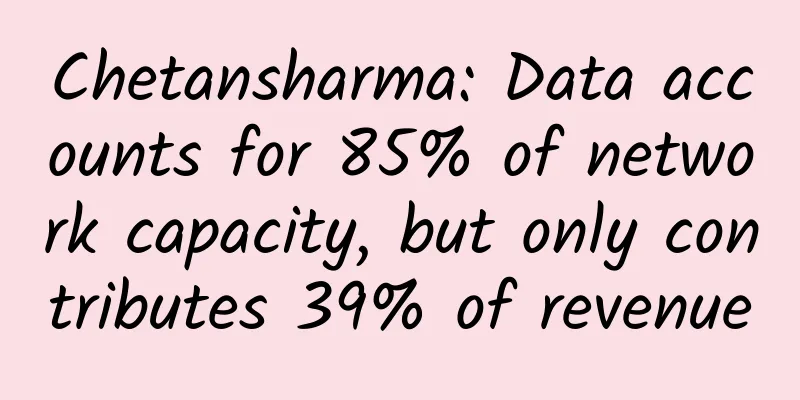Chetansharma: Data accounts for 85% of network capacity, but only contributes 39% of revenue

|
According to a report by mobile analyst Chetan Sharma, 85% of the network traffic of the four major mobile operators in the United States is pure data, but it only contributed 39% of business revenue in the fourth quarter of last year. The operators' networks have been digitized, but the main source of income is still voice services. US mobile market: Data as a percentage of ARPU Sharma's report also shows that operators' total revenue is increasing, mainly driven by the growth of data services, and is expected to grow from $67 billion in 2011 to $80 billion by the end of 2012. However, operators' average user revenue is declining, and for every 52 cents of data service fees added by operators, they will lose 96 cents of voice charges. Judging from the surface data, the prospects of operators are not optimistic: the future of mobile operators is to use data revenue to replace voice revenue, but the decline of voice revenue is much faster than the growth of data revenue. Moreover, operators use much more network resources to provide $1 of data service than to provide $1 of voice service. But the reported data doesn’t tell the whole story. While 85% of traffic is data services, the networks that carry that data are much more efficient than they used to be. Carriers can now offer megabits of data bandwidth, whereas in the past they could only offer dial-up speeds or a few dozen voice calls with the same infrastructure and spectrum investments. These dramatic gains in network efficiency mean that carriers are now well-positioned to make money in the all-data era—as long as they keep upgrading their networks. US mobile market: Data revenue of the four major operators However, the decline in voice revenue is still a big problem. Voice accounts for a large proportion of operators' revenue, but only occupies a small part of network resources. If VoIP services are fully promoted, they will eat up a large part of operators' average user revenue, which will force operators to establish new business models around data. This does not mean that data cannot make money, but it will make much less money. Operators are faced with the choice of whether to force consumers to consume data services. Sharma's report pointed out that less than 30% of American smartphone users use more than 1GB of mobile data per month. However, the data packages sold by operators are desperately stimulating data consumption. Verizon's lowest-end data package is $30 with 2GB of data. In AT&T's latest pricing plan, users can choose an entry-level package of $20 with 300MB of data flow, but the second-tier package is suddenly raised to $30 with 3GB of data flow. This means that most American smartphone users may face such a problem: the data flow in the package is simply not enough. Compiled by: IT Manager Network |
<<: Photo sharing service Instagram: 150 million users in 3 years
>>: Please be alert if you experience these symptoms, as they may be warning signs of a stroke!
Recommend
Spots on breasts
The breasts are an absolutely sensitive area on t...
How to eat hard green mangoes? How to ripen mangoes
Mango is a famous tropical fruit. It is a large, ...
What if the discharge has a strange smell? Be alert after reading this
Some women have abnormal vaginal discharge, such ...
Buzzing in the ears during late pregnancy
If a pregnant woman experiences popping sounds in...
CNZZ: Social Network Industry Development Report in January 2012
Just after the Spring Festival of the Year of the...
What are the causes of female sexual apathy?
In life, women are more likely to suffer from sex...
Is uterine inflammation serious?
Uterinary inflammation is a relatively serious gy...
What is the general growth environment of succulents? What are the tips for beginners to grow succulents?
If you want to talk about the most popular plants...
What should women pay attention to after removing the IUD?
Women have many contraceptive measures in their l...
Will menstruation occur if the follicles are immature?
The ovarian follicle is the most important part o...
8 killer tricks to become a heartthrob and successfully capture the golden man
If you feel that you have an ordinary appearance,...
What are the regulations for prenatal check-up leave?
With the progress of society, there is more and m...
Precautions for eating junk food during pregnancy
Many women like to eat foods that they don’t usua...
What does dianthus tea taste like? What is dianthus tea?
Dianthus tea is a plant that can be used as both ...

![[Health Guide] Foot bathing in summer can help get rid of these 9 minor ailments and reduce the risk of illness in winter](/upload/images/67f1fa357fb43.webp)







